Archive
03 December 2019
Understanding and predicting sandy beaches
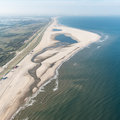
Sand is the second most widely used raw material in the world, after water. Sand dunes keep our country safe from flooding.
30 November 2019
Sinking sea water and rising sea level
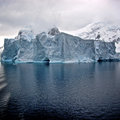
In 2014 Caroline Katsman was awarded a Vidi grant to conduct research into the influence of ocean whirls on surface water sinking. How is she getting on two (and a bit) years later? ‘2017 is going to be a bumper year, with a number of new papers in the pipeline,’ Katsman says.
25 November 2019
BRIGAID: Solutions for extreme climate events
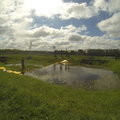
Climate scientists are predicting an increase in droughts, floods and other extreme weather events as a result of continuing global warming. BRIGAID (Bridging the gap for Innovations in Disaster Resilience), an ambitious programme initiated by a partnership of European universities, research institutes and businesses in May of this year, is aimed at finding innovative ways of coping with the increased likelihood of natural disasters of this kind. Bas Jonkman (39), Professor of Integral Hydraulic Engineering at TU Delft’s faculty of Civil Engineering and Geosciences will be heading this multifaceted programme for the next four years.
21 November 2019
Measuring the waves with a smartphone
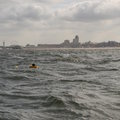
An affordable wave buoy that's easy to transport and shows everything it measures right away via an app. That's what Max Radermacher dreamt of when he was using bulky heavy instruments to collect data about wave currents for his PhD research at TU Delft. Since then, he and his partner have developed the WaveDroid – a wave buoy that meets all his personal requirements. And now it's time to demonstrate its potential to the world.
17 November 2019
10,000 plastic plants in the waterlab
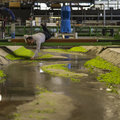
A river flows through the main channel of the waterlab full of little, green plastic plants. PhD Andrés Vargas uses this set up to study how rivers behave. What determines their shape? If you know that, you can arrive at better decisions for the cities and land located along the river. For example, where is the best place to build a bridge? And what effect does that have on the river and the surrounding land?
15 November 2019
Reading the waves
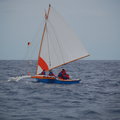
The native people of the Marshall Islands were able to find their way safely from one island to another by reading the waves, even when hundreds of kilometres separated them from the welcome sight of a friendly shore. Having neither compass nor gps, they almost always managed to get to where they set out to be. Gerbrant van Vledder, oceanographer at TU Delft, was intrigued and wanted to know how they did it. Accompanied by two fellow scientists he followed a Marshallese sailboat in order to study and preserve the ancient art of wave pattern navigation.
11 November 2019
Computations of the river bed
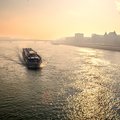
Dr ir. Astrid Blom studies changes to the river bed caused by the interaction between the flow and sand-gravel mixtures on the river bed. She does so as part of the STW projects WATER2015 “River Bed degradation” and RiverCare.
08 November 2019
Guaranteeing freshwater with a virtual delta

Freshwater is vital for drinking water, nature, agriculture and industry. However, the availability of freshwater is under pressure in deltas throughout the world. Salty seawater is penetrating further up the rivers due to human intervention, such as the deepening of waterways, as equally climate change.
06 October 2019
Multidisciplinary Project Opportunity in Vancouver, Canada
Looking for a MDP group that is interested in developing coastal adaptation measures to sea level rise.
02 October 2019
Jakarta Plastics
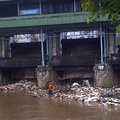
M.Sc. Thesis: Fluid mechanics of trash clogging hydraulic structures in Indonesia